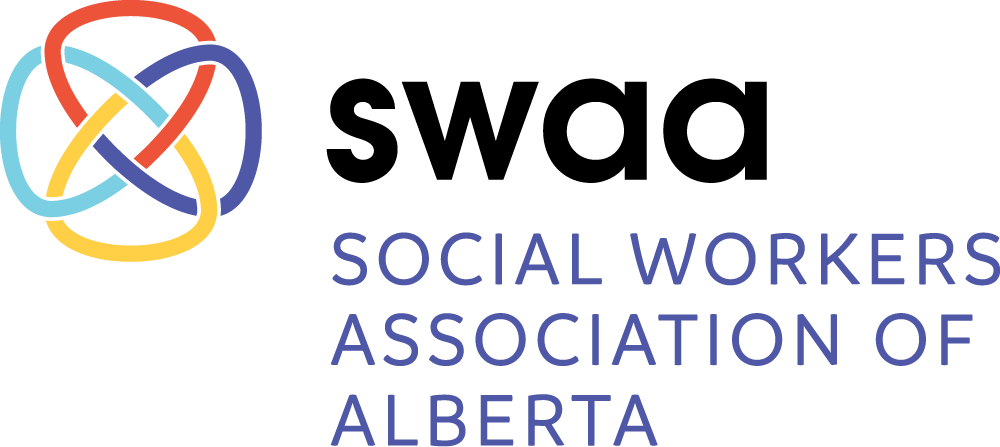Nov 16-22: National Addictions Awareness Week
Anchoring Hope. Responding to Substance Use with Compassion and Care
National Addictions Awareness Week (NAAW), observed across Canada from November 16 to 22, is a time to reflect on the realities of substance use, challenge stigma, and advocate for policies and practices that support people who use substances. This year’s theme, “Anchoring Hope”, highlights the importance of connection, community, and belief in the possibility of change and recovery. It emphasizes the need for care systems that uphold dignity, foster connection, and prioritize health and equity.
Addiction is not a moral failure or personal weakness; it is a complex health and social issue shaped by trauma, poverty, racism, colonization, mental illness, and systemic barriers to care. Yet, in Alberta and across Canada, stigma continues to shape how substance use is understood and addressed. People who use substances are often met with judgment rather than support, criminalization rather than care, and policies that punish rather than heal.
In Alberta, communities continue to feel the weight of a worsening drug toxicity crisis. Overdose deaths remain unacceptably high, with the brunt of harm borne disproportionately by Indigenous peoples, unhoused individuals, and those living in poverty. In many regions, access to harm reduction services, withdrawal management, and culturally safe treatment remains limited or entirely unavailable. These realities call for urgent, evidence-informed action.
Substance use is not isolated from broader social conditions. It intersects with housing instability, incarceration, family disruption, and intergenerational trauma. For many, pathways to substance use begin in environments shaped by violence, inequality, or abandonment. Recognizing these root causes is essential to building compassionate responses that go beyond surface-level interventions.
Despite growing public awareness, stigma remains a powerful barrier to accessing help. Shame and fear often prevent individuals and families from seeking care. When they do reach out, they are too often met with fragmented services, long waitlists, or one-size-fits-all models that fail to reflect their needs and realities.
A public health approach to addiction recognizes that people who use substances deserve care and support, not punishment or marginalization. It affirms that effective responses must be trauma-informed, culturally relevant, and rooted in harm reduction, not abstinence alone.
The Role and Responsibility of Social Workers
Social workers across Alberta are central to the continuum of care for people impacted by addiction. They provide outreach in encampments, counselling in detox centres, advocacy in hospitals, and support in youth shelters, correctional facilities, and child welfare. Their work is grounded in principles of dignity, self-determination, and social justice.
Social workers understand that healing from addiction does not happen in isolation. It happens in relationships, in safe housing, in culturally grounded supports, and in communities that do not criminalize people for using substances. They recognize the links between substance use and grief, displacement, gender-based violence, and mental health challenges.
However, social workers are also operating within systems that are underfunded, overburdened, and often punitive. They face the ethical strain of knowing what supports would help their clients, but being unable to access them. Many report burnout, moral distress, and frustration at being expected to provide care in the absence of structural supports.
There is a need to recognize, invest in, and expand the role of social work within addiction services—not only as crisis responders, but as advocates for long-term, community-led change.
Advancing Equity Through Anti-Oppressive Practice
Responding to addiction through an anti-oppressive lens means acknowledging the systemic forces that shape substance use and the inequities that determine who gets access to care. It means recognizing that Indigenous, racialized, 2SLGBTQ+, and disabled people often face the highest risks and the lowest levels of service.
To move from stigma to support, we must commit to:
Implementing trauma-informed and culturally safe practices across all addiction services.
Protecting the rights of Indigenous peoples to lead healing initiatives grounded in their traditions, languages, and land-based practices.
Funding harm reduction, safe supply, and overdose prevention programs as essential components of care.
Ensuring equitable access to treatment and support services across urban, rural, and remote communities.
Embedding Afrocentric, Indigenous, and other culturally grounded approaches into programming and policy.
Addressing the root causes of addiction, including poverty, racism, colonial violence, and housing insecurity.
This work must be led by communities, supported by policy, and grounded in evidence, equity, and care.
A Call to Compassionate Action
Addiction is not a choice, but our response to it is. We can choose to meet people with compassion instead of judgment, with housing instead of handcuffs, with community instead of isolation. National Addictions Awareness Week is an opportunity to affirm that every person deserves care, dignity, and the chance to heal.
To move from awareness to action, we must listen to those with lived and living experience, invest in harm reduction and prevention, and transform the systems that continue to fail those most in need. Social workers, frontline workers, and peer advocates have long been sounding the alarm, it is time we follow their lead.
Let us honour this week not only with words, but with the commitment to create systems that see the whole person, support their healing, and never treat them as disposable.
Written by Evetta Solomon
Resources
Recovery Access Alberta - A centralized access point for addiction
Aventa - A live‑in addiction treatment centre in Alberta offering trauma‑informed, gender‑specific and holistic services for women.
Canadian Mental Health Association Alberta Division - Resource hub “Help Right Now” with helplines, including addiction and mental‑health supports for Albertans.
211 Alberta – Province‑wide information and referral line for community services, including addiction and mental health supports
